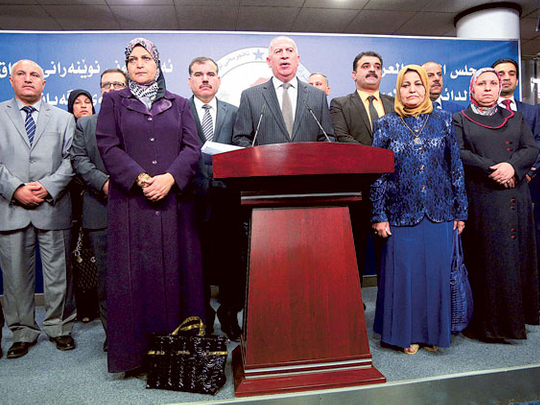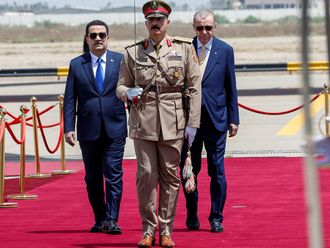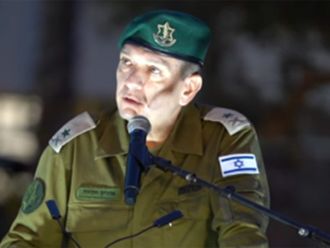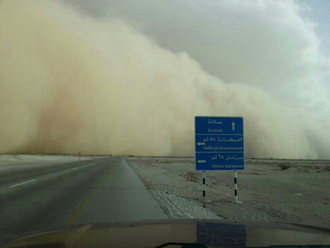
Baghdad: Iraq’s fractious parliament met on Sunday and again failed to make any progress towards forming a new government, as militants gained ground north of Baghdad in a renewed drive.
World powers and Iraq’s top Shiite cleric Grand Ayatollah Ali Al Sistani have piled pressure on MPs to put aside their differences, with the country facing a major Islamist-led onslaught that has overrun chunks of five provinces.
But acting parliament speaker Mahdi Hafez announced at Sunday’s session that “no type of agreement was reached... between the various blocs”, and the session was adjourned to Tuesday.
The latest stalemate came despite the announcement late on Saturday of an agreement among Sunni Arab lawmakers on a candidate for speaker, a post traditionally held by the minority group that must be filled before the government formation process can progress.
A statement from parliament’s United for Change Sunni grouping said Dr Salim Al Juburi had been selected, but went on to pledge not to accept incumbent premier Nouri Al Maliki for a third term.
Former parliament speaker Osama Al Nujaifi called on Sunday for a vote on Al Juburi, but Hafez rejected this, saying not all blocs were in agreement, despite there being more than enough MPs present to hold a vote.
The UN’s Iraq envoy Nickolay Mladenov had warned that “failing to move forward on electing a new speaker, a new president and a new government risks plunging the country into chaos”.
“It will only serve the interests of those who seek to divide the people of Iraq and destroy their chances for peace and prosperity.”
Sunday’s session was the second time parliament has completely failed to make progress, with a July 1 meeting breaking down when MPs traded barbs and enough failed to return after a break that the legislature was without a quorum.
Despite the need for a government to counter the militant offensive, prospects for a speedy resolution of seemingly intractable differences over key appointments and other issues appear dim.
Ties between the Baghdad government and Iraq’s autonomous Kurdish region have hit new lows, and Al Maliki has pledged to seek a third term despite some lawmakers insisting that he step aside.
On Friday, the Kurdish region’s government claimed disputed northern oilfields, having earlier taken control of other contested areas abandoned by Iraqi forces last month as they fled a sweeping offensive led by jihadists from the Islamic State of Iraq and the Levant group.
Kurdish regional President Massoud Barzani has also called for a vote on outright independence, further souring ties with the federal government.
Kurdish lawmaker Rizan Diler Mustafa said before Sunday’s session that he thought it would “be the same as the previous one. I doubt the parties will reach agreement on the three nominees.”
Under an unofficial agreement, the posts of speaker, president and prime minister are allotted to a Sunni Arab, Kurd and Shiite Arab respectively.
Al Maliki has accused the Kurds of exploiting the insurgent offensive and harbouring militants, while the Kurds say Baghdad is unfairly withholding their share of oil revenues and have called for him to step down.
Al Maliki, a Shiite Arab viewed by opponents as a divisive and sectarian leader, has no plans to do so, despite eroding political support and thinly veiled calls for change from Washington.
The 64-year-old premier and his coalition partners dominated the April elections, and there is no obvious consensus candidate to replace him.
In a sign of Washington’s concern, Vice President Joe Biden on Saturday spoke by phone with Barzani and Nujaifi about the need for “all Iraqi political forces” to work to form a new government as soon as possible, the White House said.
It is hoped a new more inclusive government will help drain resentment among Iraq’s minority Sunni Arabs, which plays into the hands of militant groups.












